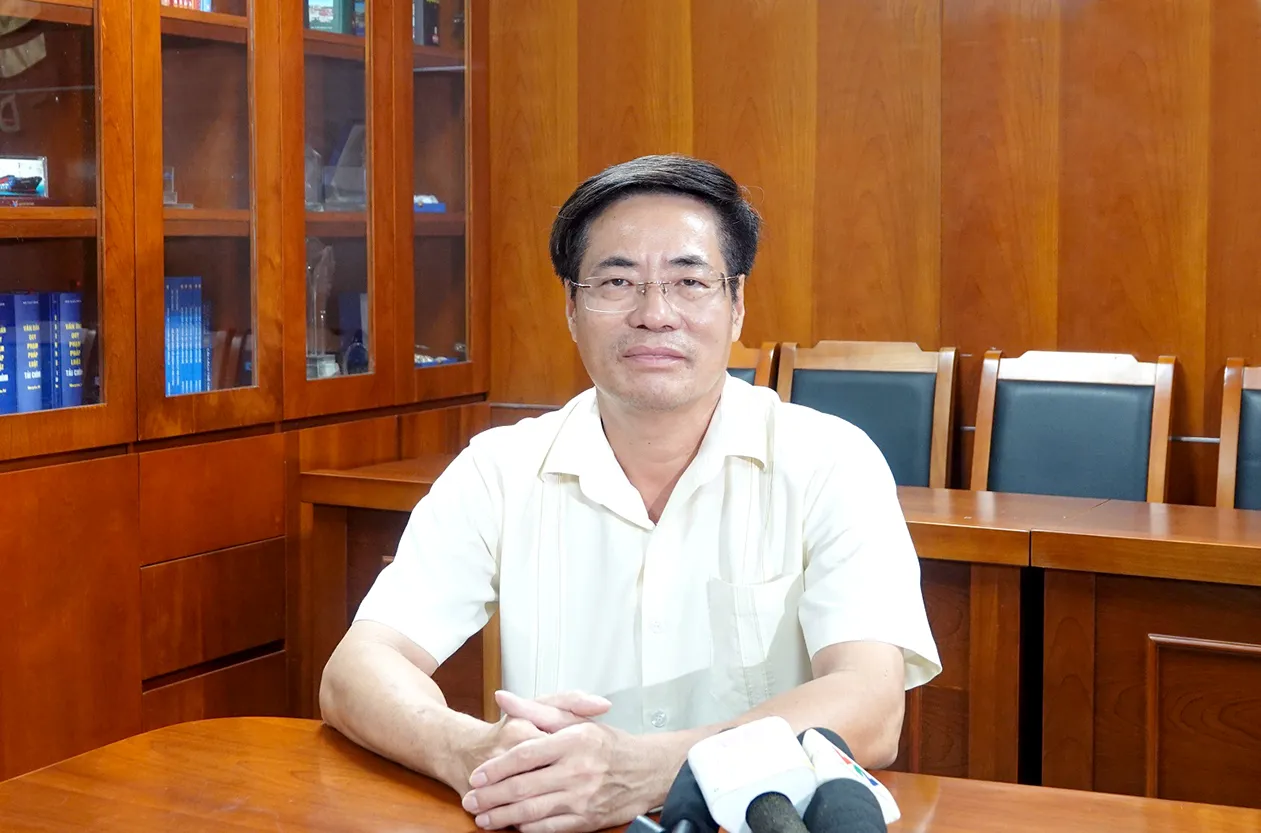Moody’s sovereign rating upgrade raises Vietnam’s appeal to foreign investors
A positive rating would put Vietnam in favorable position to attract both direct and indirect investment into the economy.
General Director of the Debt Management and External Finance Department under the Ministry of Finance Truong Hung Long told the media about the significance of Moody’s decision in raising Vietnam’s sovereign rating.
| General Director of the Debt Management and External Finance Department under the Ministry of Finance Truong Hung Long. Photo: MoF |
What is the meaning of Moody’s decision to upgrade Vietnam’s long-term issuers and senior unsecured rating to Ba2 from Ba3, and changed the outlook to stable?
The purpose of international rating agencies is to provide assessments from investors and lenders on countries’ repayment capabilities. An upgrade in Vietnam’s rating means a better evaluation from Moody’s against the previous period, as such, the country’s borrowing cost in both the state and private sector would be lower.
For state-owned enterprises, such a rating would help them better mobilize capital for operation and expansion. This is set to create a spillover effect for the private sector in attracting investment as the economy would gain greater attention from investors.
How would the new rating benefit Vietnam’s FDI attraction?
With Vietnam having a higher sovereign rating, investors are more willing to put their money into the country with the belief that the risk of loss would be lower. As a result, more capital coming in would mean a cheaper deposit rate.
Overall, a positive rating would put Vietnam in a favorable position to attract both direct and indirect investment into the economy.
What are the changes that convince Moody’s to upgrade Vietnam’s rating from Ba3 to Ba2?
There are two key factors for Moody’s to raise Vietnam’s long-term sovereign rating from Ba3 to Ba2. Firstly, Vietnam’s economic strength comes from its capability in maintaining a high growth rate, containing inflation, and keeping resilience against external shocks, which are seen much better against countries of the same rank. Secondly, Vietnam was able to keep a solid fiscal base, coming from cautious fiscal policy management and effective debt restructuring efforts. This resulted in a lower budget deficit, public debt under the limit, and cheaper borrowing costs.
Vietnam is also gradually switching from foreign borrowing to domestic borrowing. They are the factors for Moody’s to raise its assessment of Vietnam.
What should Vietnam focus on to further raise its rating?
Vietnam is expected to continue improving its capabilities in institution, governance, and reform in both the banking and public sectors, to minimize risks. The strength in institution and governance are shown in the validity and efficiency of policies, as well as in policy implementation. As such, the priority would be to timely disclose all indicators of state governance.
In the reform process in the banking sector, the key task would be to enhance efficiency in the implementation of monetary policy, the supervision capability of banks’ operation, and asset quality.
Meanwhile, the Government continues to maintain a high stake in the public sector. Measures to ensure the efficiency of this sector and reduce its debt obligation should be the focus in long term.
The Vietnamese Government has issued a plan to upgrade Vietnam’s sovereign rating until 2030. With the strong economic base and high political determination from the Party, and the Government, I am convinced Vietnam would be able to achieve all the targets.
Thank you for your time!
Vietnam’s Ministry of Finance (MoF) noted that Moody’s decision to upgrade Vietnam’s sovereign rating amid rising global uncertainties showcases the high regard of the international community for the efforts of the Government in stabilizing the macro-economy and boosting socio-economic development. “The negative economic environment led to 30 rating downgrades for countries around the world during the first eight months of 2022, while Vietnam was the only country in the Asia-Pacific, and among four worldwide having seen their ratings upgraded by Moody’s,” stated the MoF. Under the Government’s plan, Vietnam targets its sovereign ratings to reach at least Baa3 (for Moody’s) or BBB- (for S&P and Fitch) by 2030. Among measures to realize these targets, the Government expects to promote strong public finance and nurture sustainable revenue sources to improve debt indicators and solidify the fiscal basis. “The focus is to ensure a healthy fiscal foundation and sustainable budget policy in line with Vietnam’s international commitments and good practices,” it noted, adding the necessity to gradually reduce the budget deficit, public debt, and Government debt. The Government also stressed the importance of promoting transparency in fiscal policy, as well as the consistency between the medium-term public investment plan and the five-year national financial plan for debt payment. |











